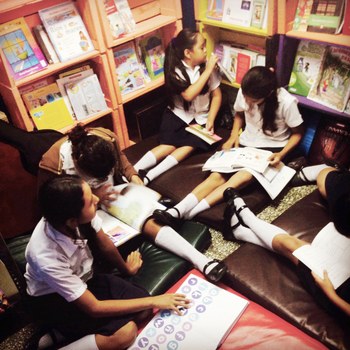
Starting in 2009, through various projects funded by the Italian Development Cooperation Agency, the Department of Educational Sciences of the University of Bologna and the NGO EducAid of Rimini accompanied the Ministry of Education of El Salvador in the development of a inclusive Full-time School model (AICS).
Today Alma Mater is involved in the project "Potenciando la Escuela Inclusiva de Tiempo Pleno": an intervention that aims to support within the educational system the inclusion of both children with disabilities and those who are in a situation of socio-economic and cultural disadvantage. For this reason, experiments were planned with pedagogical and didactic innovations based on the principles of active education and inclusion.
The project deals with forming the key figures of the educational system on the themes of inclusive education, thus fostering the emergence of transformation processes both in schools and on the territory. An inclusive review of university training for teachers is also planned, through a participatory technical assistance intervention that involves both the Ministry of Education of El Salvador and local universities.
In 2016 the Ministry of Education then entrusted the University of Bologna with the scientific responsibility for the re-elaboration of the development process of the "Escuela Inclusiva de Tiempo Pleno" model. The study, carried out by Italian and Salvadorian experts on a sample of schools, produced a strategic document for the dissemination throughout the country of the educational experience. The document was delivered by UniBo, EducAid and AICS directly to the President of the Republic of El Salvador, Salvador Sánchez Cerén, during a meeting held last December. As a whole, the program focused on building a network of different actors (local institutions, national and international NGOs), also encouraging the assumption of responsibility by the universities responsible for initial teacher education. Involving the Ministry of Education and local universities, the approach adopted is allowing the progressive dissemination of inclusion policies throughout the national education system.
Collaborations: